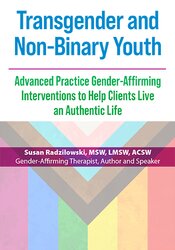Si iscriva oggi stesso a un corso online per un apprendimento flessibile e autonomo, senza necessità di orari fissi.


-
 Corso onlineSia che siate nuovi alla terapia Internal Family Systems IFS) o che pratichiate questo modello da anni, registratevi e scoprite come perfezionare e personalizzare il modello per adattarlo alle esigenze specifiche dei vostri clienti.Valore: 1.140,66 euro *(275,99 €)€137,99Sia che siate nuovi alla terapia Internal Family Systems IFS) o che pratichiate questo modello da anni, registratevi e scoprite come perfezionare e personalizzare il modello per adattarlo alle esigenze specifiche dei vostri clienti.21 ottobre, 2020Corso onlineValore: 1.140,66 euro *(275,99 €)€137,99Sia che siate nuovi alla terapia Internal Family Systems IFS) o che pratichiate questo modello da anni, registratevi e scoprite come perfezionare e personalizzare il modello per adattarlo alle esigenze specifiche dei vostri clienti.Valore: 1.140,66 euro *(275,99 €)€137,99
Corso onlineSia che siate nuovi alla terapia Internal Family Systems IFS) o che pratichiate questo modello da anni, registratevi e scoprite come perfezionare e personalizzare il modello per adattarlo alle esigenze specifiche dei vostri clienti.Valore: 1.140,66 euro *(275,99 €)€137,99Sia che siate nuovi alla terapia Internal Family Systems IFS) o che pratichiate questo modello da anni, registratevi e scoprite come perfezionare e personalizzare il modello per adattarlo alle esigenze specifiche dei vostri clienti.21 ottobre, 2020Corso onlineValore: 1.140,66 euro *(275,99 €)€137,99Sia che siate nuovi alla terapia Internal Family Systems IFS) o che pratichiate questo modello da anni, registratevi e scoprite come perfezionare e personalizzare il modello per adattarlo alle esigenze specifiche dei vostri clienti.Valore: 1.140,66 euro *(275,99 €)€137,99 -
 Corso onlineGabor Maté va oltre le istruzioni e dimostra esattamente come utilizza l'Inchiesta Compassionevole per facilitare la guarigione. Lo guardi mentre mette in pratica il suo metodo unico con oltre 10 persone del pubblico.Valore: 689,89 € *(275,99 €)€137,99Gabor Maté va oltre le istruzioni e dimostra esattamente come utilizza l'Inchiesta Compassionevole per facilitare la guarigione. Lo guardi mentre mette in pratica il suo metodo unico con oltre 10 persone del pubblico.15 luglio, 2022Corso onlineValore: 689,89 € *(275,99 €)€137,99Gabor Maté va oltre le istruzioni e dimostra esattamente come utilizza l'Inchiesta Compassionevole per facilitare la guarigione. Lo guardi mentre mette in pratica il suo metodo unico con oltre 10 persone del pubblico.Valore: 689,89 € *(275,99 €)€137,99
Corso onlineGabor Maté va oltre le istruzioni e dimostra esattamente come utilizza l'Inchiesta Compassionevole per facilitare la guarigione. Lo guardi mentre mette in pratica il suo metodo unico con oltre 10 persone del pubblico.Valore: 689,89 € *(275,99 €)€137,99Gabor Maté va oltre le istruzioni e dimostra esattamente come utilizza l'Inchiesta Compassionevole per facilitare la guarigione. Lo guardi mentre mette in pratica il suo metodo unico con oltre 10 persone del pubblico.15 luglio, 2022Corso onlineValore: 689,89 € *(275,99 €)€137,99Gabor Maté va oltre le istruzioni e dimostra esattamente come utilizza l'Inchiesta Compassionevole per facilitare la guarigione. Lo guardi mentre mette in pratica il suo metodo unico con oltre 10 persone del pubblico.Valore: 689,89 € *(275,99 €)€137,99 -
Diventa un affiliato
Argomenti di tendenza:











